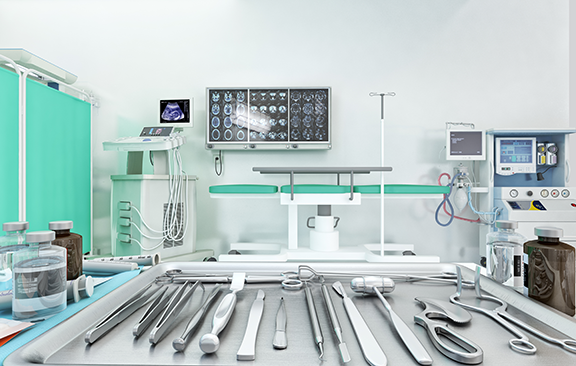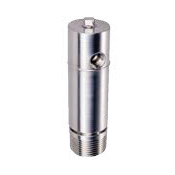 Why Coatings are Important in the Medical Device Industry
Why Coatings are Important in the Medical Device Industry
Medical professionals are not thinking about the coatings on their instruments when they’re using them – they’re focused whether the instrument is doing its job correctly as it’s being used. However, if the coating on a medical device is off-spec, or too thin or thick, or not displaying the required characteristics, the device may not perform as intended, and the effects can range from a minor distortion of characteristics to unacceptable in-vivo interactions. Quality control in medical device manufacturing is taken very seriously. Off-spec and inconsistent coatings lead to waste, which can be costly.
Viscosity measurement and control is an ideal method to measure coating thickness, because the coating thickness is actually a measurement of the solids in the coating fluid. The amount of coating molecules in the fluid directly impacts its resistance to flow. The percent of solids in fluid can be impacted by the temperature of that fluid, and it’s normal for the temperature to vary throughout the manufacturing process. These normal ambient temperature changes over the course of manufacturing can make applying the correct film thickness challenging. When the coating is uneven, the product likely is unusable and needs to be discarded. This leads to costly waste and rework. Coating materials are expensive, and VOC-based solvents are tightly controlled. Over time, the financial impact of coating errors adds up.
Cambridge Viscosity’s ViscoPro 2100 is an Ideal Choice for Biomedical Products
Field-proven in hundreds of installations, Cambridge Viscosity’s ViscoPro 2100 is an excellent choice for in-line viscosity measurement. Cambridge Viscosity has a 20+ year history of working with medical device manufacturers to ensure accurate coating. Using the patented oscillating piston technology, our latest viscometer, ViscoPro 2100, precisely measures fluid viscosity at high levels of accuracy and repeatability. This method also continuously cleans the chamber, reducing ongoing maintenance requirements. Return on investment is typically realized within weeks.
Small Fluid Sample Size
The ViscoPro 2100 only requires a very small sample. Since fluid volumes in medical coating systems tend to be low – often only four to five liters of coating for the entire system, including the reservoir, pump, dip tank, and filter – a viscometer with a small sample requirement, such as the ViscoPro 2100, is needed.
A Viscometer that Works in Small Spaces
 The VP2100 was designed for process areas where space is limited. Our 372 sensor with ¼” inlet and outlet ports was developed for small system volumes, like those in medical device coating applications. The 372 is easy to install and easy to maintain, and suitable for hazardous areas. Additionally, where sample conditioning is required, small sensors like the 372 require smaller amounts of fluid treatment.
The VP2100 was designed for process areas where space is limited. Our 372 sensor with ¼” inlet and outlet ports was developed for small system volumes, like those in medical device coating applications. The 372 is easy to install and easy to maintain, and suitable for hazardous areas. Additionally, where sample conditioning is required, small sensors like the 372 require smaller amounts of fluid treatment.
Why Choose the ViscoPro 2100 for Medical Device Coating Applications
The ViscoPro 2100 with temperature-compensated viscosity helps medical device manufacturers improve product quality by ensuring on-spec coatings. From ensuring the coating systems run at efficient levels without constant interruption to check coating quality, to reducing the amount of scrap product and wasted coating in the production process, the ViscoPro 2100 delivers significant cost savings to users in the medical device manufacturing industry.





